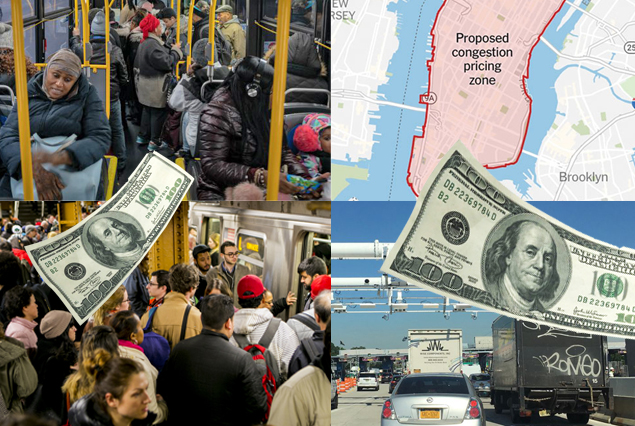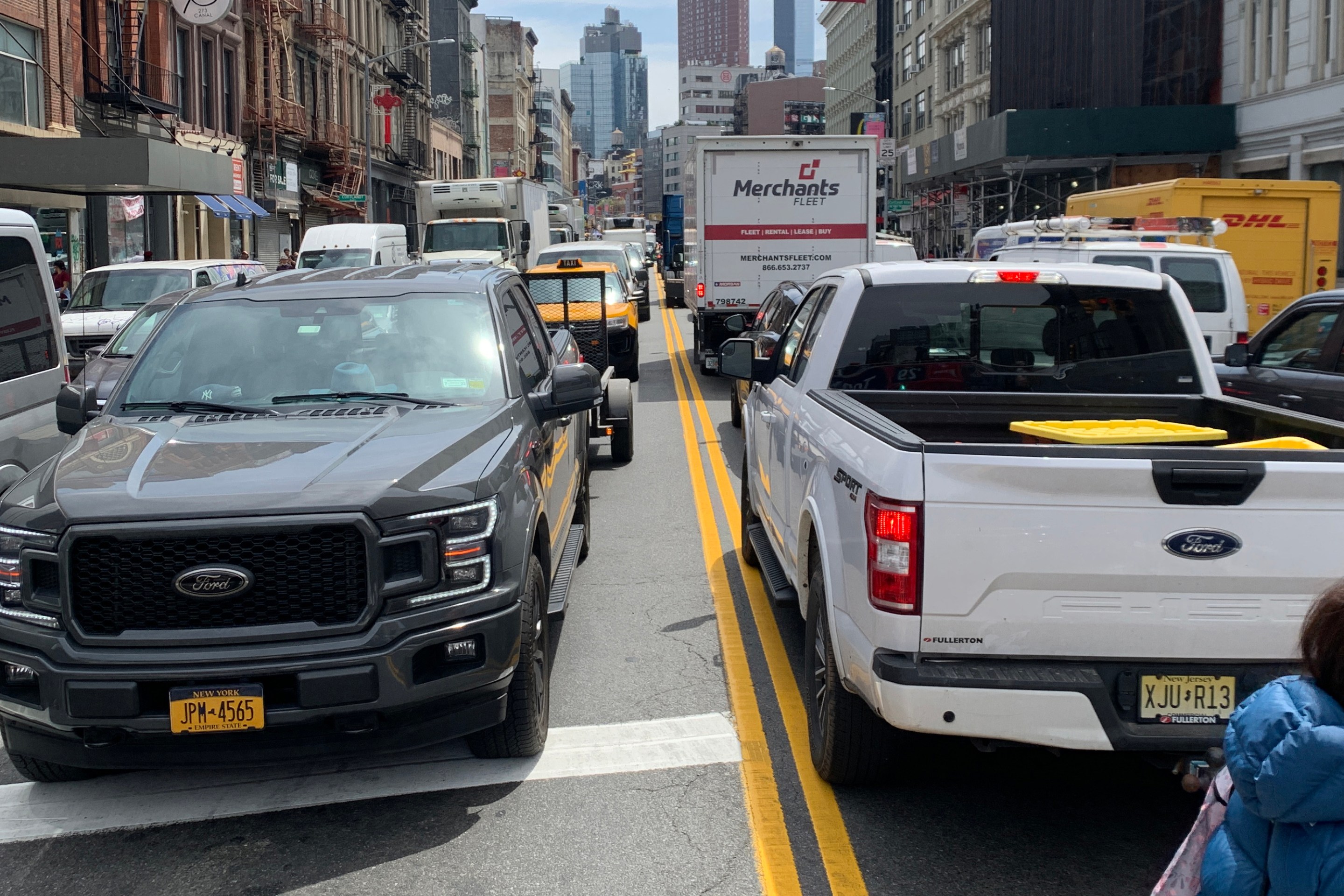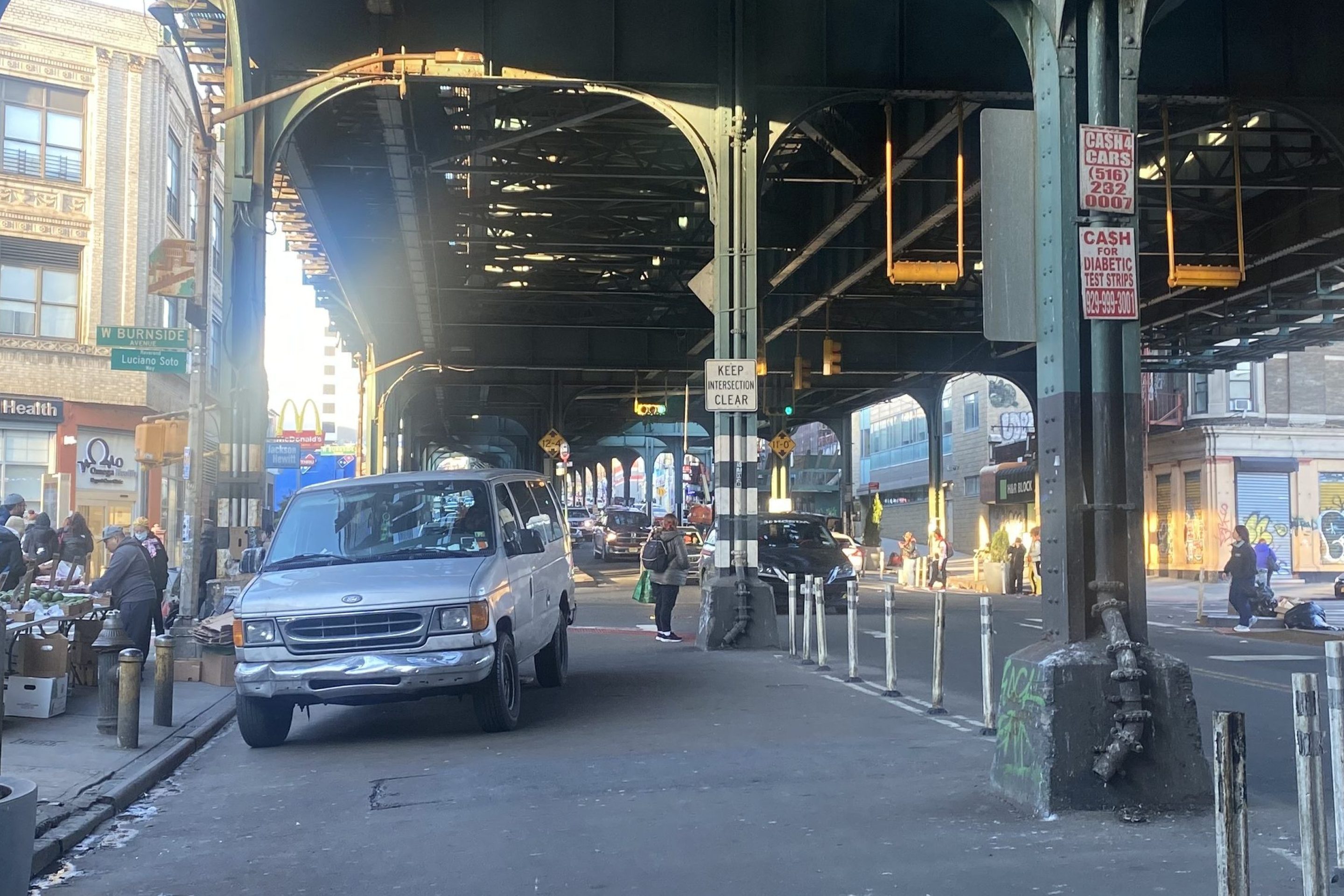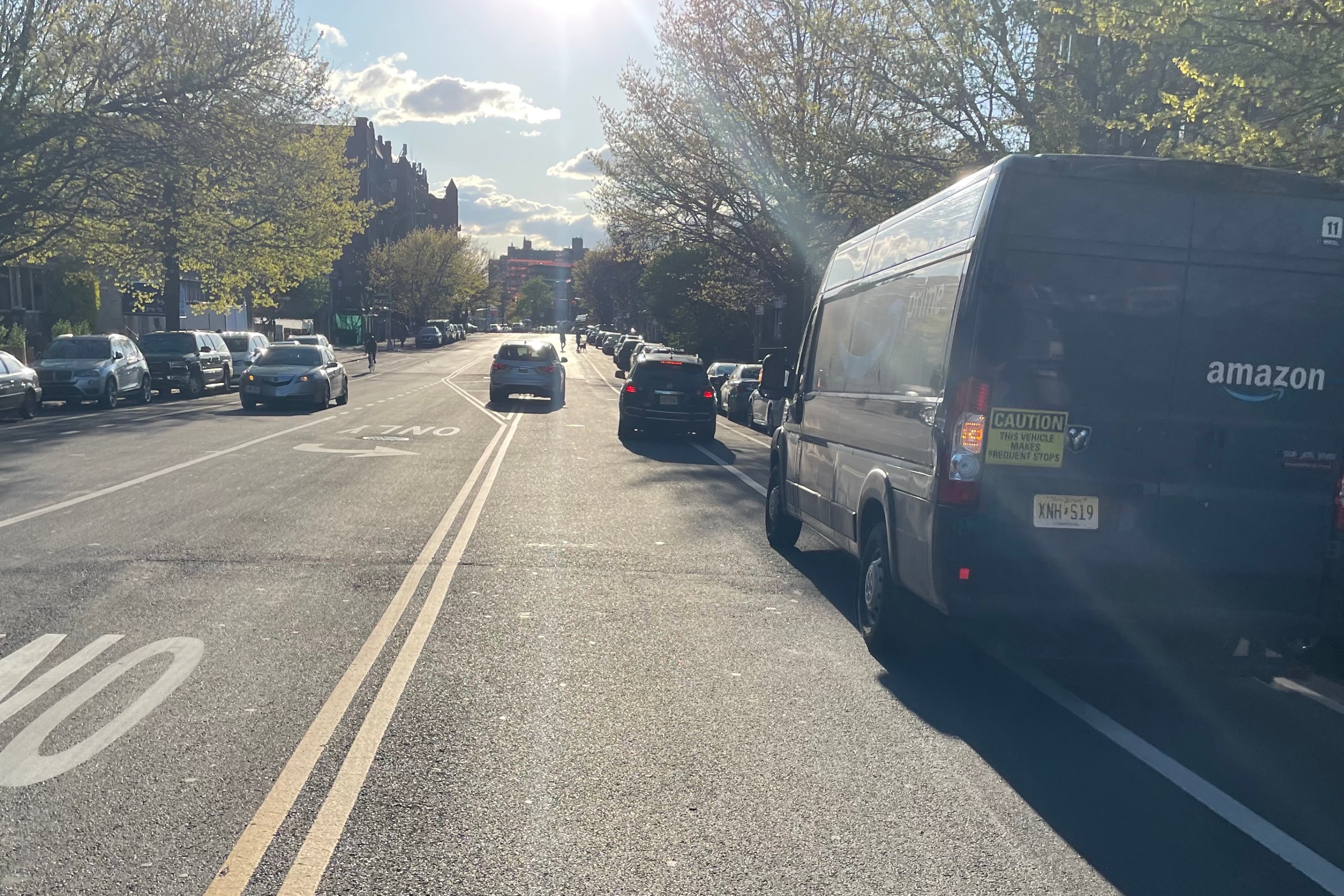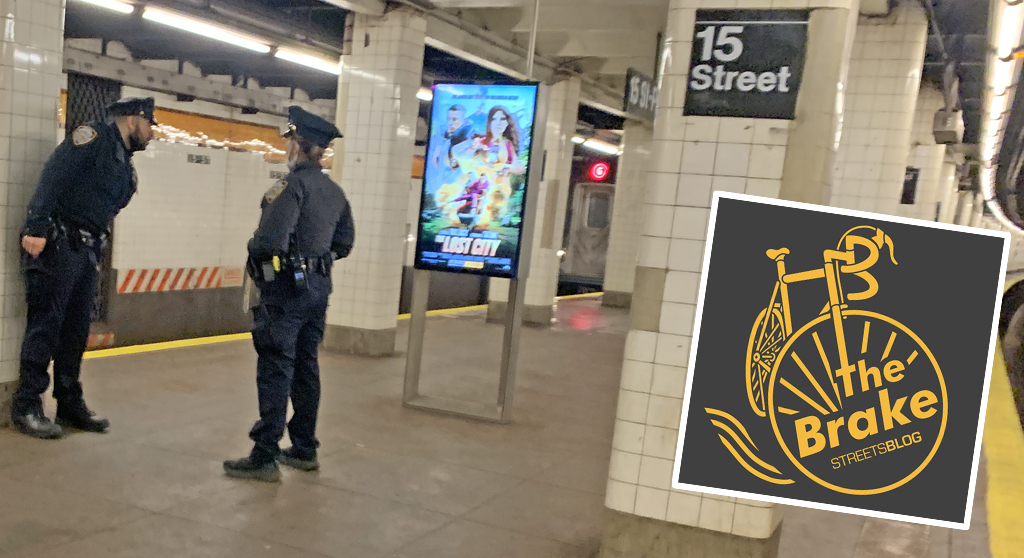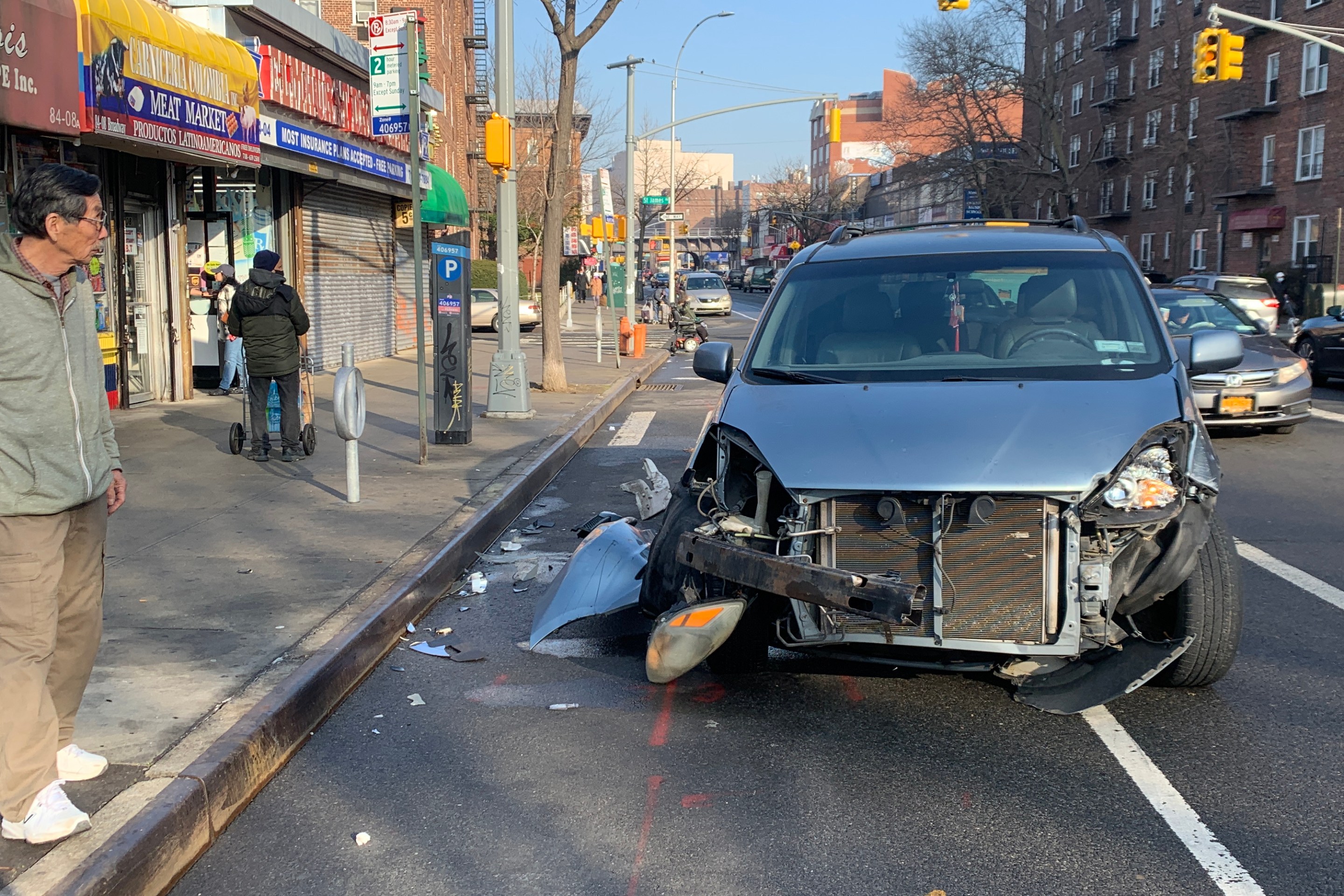A special fund created in 2018 to pay for transportation "carrots" intended to counteract the supposed stick of congestion pricing finally has a balance of tens of millions of dollars — but it's already being used to encourage more driving.
State legislators created the Outer Borough Transportation Account — funded by a 2018 taxi surcharge characterized as "Phase I" of congestion pricing — to pay for toll rebates as well as MTA-related transit improvement.
The first $300 million raised by the surcharge went to subway maintenance. But the next $50 million will fund a slate of projects determined by state legislators and the governor.
Before the Covid pandemic, officials' original wish list included toll rebates for Staten Island residents who use the Verrazzano Bridge, for Bronx residents who use the Henry Hudson Bridge, and for Queens residents who drive over the Cross Bay Bridge. The account was also slated to fund 10-percent discounts on in-city travel on the Long Island Rail Road and Metro-North, 20-percent discounts on monthly tickets for in-city LIRR travel, additional service on the Q46 bus and other buses, and a late-night microtransit pilot in select neighborhoods.
Some of that is unlikely to change, especially rebates for the Henry Hudson Bridge and Cross Bay Bridge that already launched this year. The Verrazzano Bridge rebate, meanwhile is funded through state budget.
But the facts on the ground around commuter rail have changed significantly since officials sought to fund discounted LIRR and Metro-North tickets. Not only have changing commuter patterns depleted commuter rail ridership, but the MTA already expanded in-city Metro-North and LIRR discounts with its own funding.
In 2022, the MTA graduated the City Ticket from a weekend-only, $4.50 one-way intracity ride into a pilot for a $5 ticket LIRR and Metro-North riders could use for any off-peak intracity train. The agency then made the $5 City Ticket permanent, established a $7 peak City Ticket and also a Far Rockaway-specific version last year.
With City Ticket already expanded, the previously agreed upon LIRR and Metro-North discounts are much less urgent, leaving room for more transformative options, such as allowing commuter rail riders to get a free transfer to the bus or subway or creating a weekly City Ticket (with commensurate discounts) to join the daily City Ticket.
"A City Ticket weekly is an obvious, practical and very equitable use of our transit account funds," said Lisa Daglian, the executive director of the Permanent Citizens Advisory Committee to the MTA. "It would allow people from within the city to buy a discounted weekly with a with transfers to subways and buses."
The MTA used to offer an intracity discount ticket and MetroCard combo under a pilot program called "Atlantic Ticket," which the agency eliminated last year with the introduction of the peak City Ticket.
Daglian's case for a weekly City Ticket, which the PCAC pushed in the past as the Freedom Ticket, hinges on the fact that LIRR and Metro-North ridership is currently hovering around 68 percent of pre-pandemic ridership on weekdays. Ridership concentrates on Tuesdays, Wednesdays and Thursdays.
"Commuting patterns are different, so does it make sense to do the 'same-old same-old' when we've got a very different world and a very different way using using the railroads and the way we travel? This is a great opportunity to look to the future by way of the past and give people a City Ticket weekly," she said.
The fund need not exclusively fund discounts and rebates, however. For instance, Assembly Member Nily Rozic (D-Queens) won restored service for the Q46 bus with the fund. The original list of projects funded by the OBTA also included the nebulous idea of "additional bus service."
Advocates want to make sure that bus service improvements stay in the mix — whether in the form of frequent buses and tweaked schedules or even entirely new routes.
"The most important thing is better bus service," said Riders Alliance Director of Policy and Communications Danny Pearlstein. "The bus system reaches everywhere in the city. And particularly with ongoing bus network redesigns, the more [money] invested in bus service, the better those projects will deliver for bus riders who depend on them."
It's ultimately up to the legislators themselves to figure out what package of projects they want to fund before bringing it to the state Capital Program Review Board for final approval. That panel's membership consists of representatives appointed by Gov. Hochul, state Senate Majority Leader Andrea Stewart-Cousins and Assembly Speaker Carl Heastie.
With full-scale congestion pricing attracting new opponents as it draws nearer, it behooves legislators to pick projects soon and show constituents the carrots they got in exchange for the toll's alleged stick. And the OBTA is a chance to expand service before the toll begins, as congestion pricing supporters and frenemies insist.
"The outer-borough fund was a carrot," said Reinvent Albany Senior Policy Advisory Rachael Fauss. "That the money is now finally arriving this year means that it is absolutely connected to congestion pricing's implementation today. The fund is letting legislators bring something home for their communities as higher tolls are on the way — along with the many capital improvements to come from congestion pricing itself."
